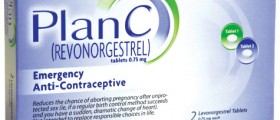
There is a variety of birth control methods used to prevent conception in women. Although it is a well known fact that the most efficient form of birth control is celibacy, most women do not want to abstain from sex and have to find other means to avoid pregnancy. Women can choose between many birth control methods such as oral contraceptive pills, intrauterine devices and condoms. However, these methods often have unwanted effects, such as headaches, and to avoid this, women can opt for VCF birth control.
VCF Birth Control Overview
VCF is short for vaginal contraceptive film. It is a two by two inch, thin, square material that contains spermicide. Spermicide is a substance that kills sperm thus prevents fertilization.
Vaginal contraceptive film is a water soluble material that dissolves in the vagina about 15 minutes after the insertion. As the film dissolves it releases spermicide acting like a barrier to prevent sperm from entering the cervix. VCF is effective for about one hour.
Vaginal contraceptive film is easily placed by folding it in half and inserting it deep into the vagina, on or near the cervix. A new vaginal contraceptive film must be used with each vaginal sex.
How Effective Is VCF?
There is no 100% effective birth control method and VCF, like other spermicides, is around 94% effective. However, vaginal contraceptive film used in combination with other birth control methods like condoms increases protection against pregnancy.
VCF Vs Pills
Oral contraceptive pills are approximately 98% effective, meaning it is about 4% more effective comparing to vaginal contraceptive film. However, this does not mean the pills are a better option as there are many side effects associated with this birth control method.
Oral contraceptive pill may cause nausea, vomiting, bloating and severe headaches and may increase the risk of stroke, heart attack and other serious side effects. On the other hand, use of VCF does not produce serious medical issues except for possible mild vaginal irritation during sexual intercourse that may last for one or two minutes. This VCF side effect occurs in 2% of cases.
Advantages of VCFGreat advantage of VCF lies in its form which makes it undetectable by both partners. It is unobtrusive to both men and women and can not be felt. Also, advantage of VCF is that it does not cause any changes in the body and adverse effects associated with birth control pills and other hormonal birth control methods. Unlike IUD and oral contraceptive pills, vaginal contraceptive film can be used only when needed.

















Your thoughts on this
Loading...